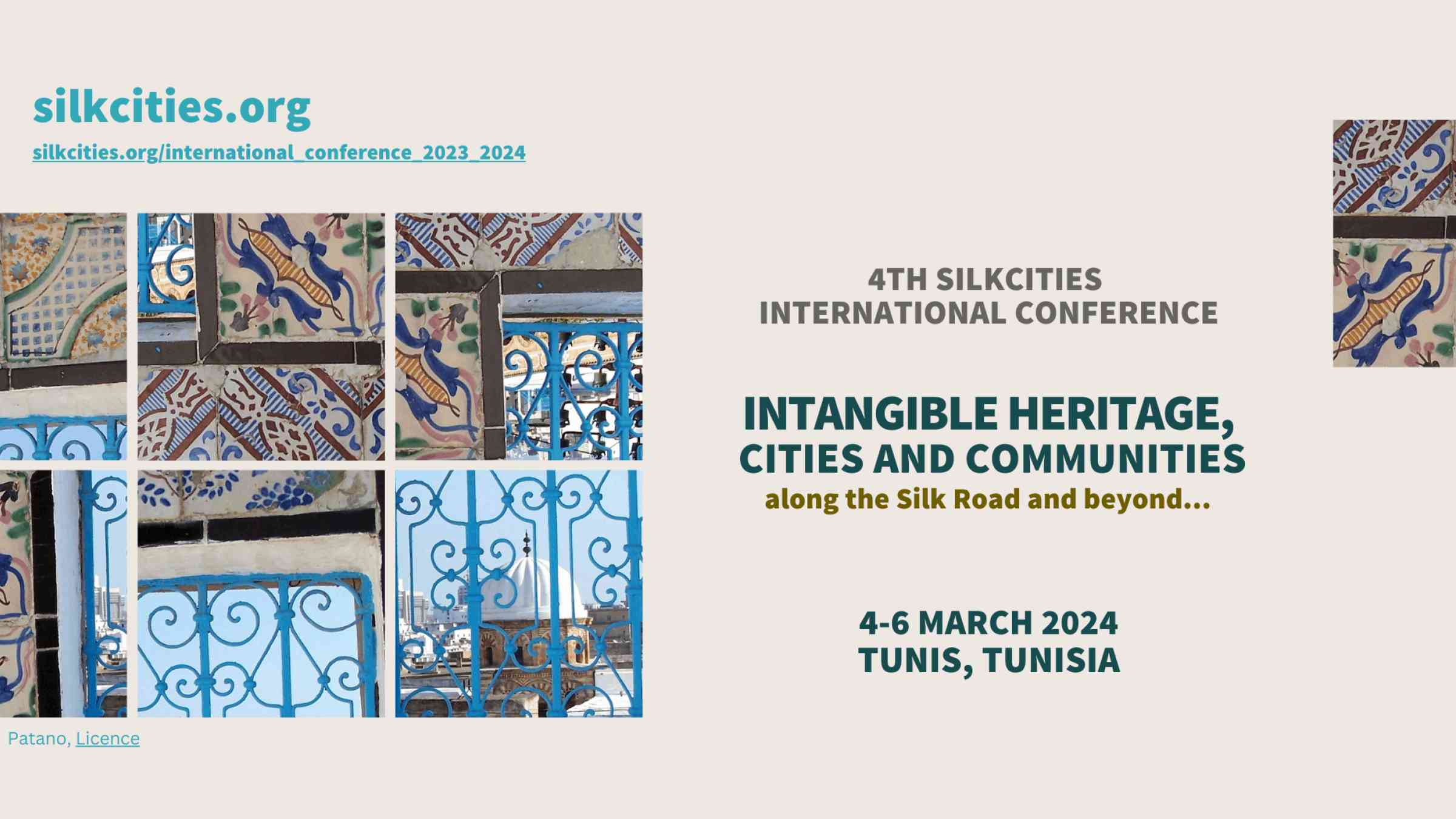The 4th Silk Cities International conference: Intangible Heritage, Cities and Communities along the Silk Roads and beyond...

Dar Lasram
About
Cultural practices, rituals, and traditional knowledge are intertwined with human existence. From yearly celebration of new years to those cultural expressions engaged with daily life such as music, religious practices, and food they are an inherently part of communities and individual lives, often considered as a natural extension of their ‘being’. Amid rapid urban changes and increased global mobility, immigration or forced displacement, communities and individuals are central to preserving heritage.
The Fourth International Silk Cities Conference will foster international dialogues between multiple disciplines related to urban studies, art and humanities, social science as well as disaster management, heritage and migration studies. It will be open to scholars, practitioners, international organisations, and policy makers.
The concept of intangible heritage is underexplored, yet inherently intertwined with urban life. The aim is to unpack links between space, community, time and heritages in cities in normal as well as disrupted circumstances to gain a better understanding of this multifaceted concept. Even in cities facing disasters, an emerging notion is the value of intangible heritage in recovering from natural incidents, wars, and revolutions. The Conference seeks to offer new perspectives and strategies towards a better understanding of urban intangible heritage and to push the traditional theoretical and practical boundaries by applying a holistic approach towards integrating potentials of intangible heritage to inform urban policies and practices as well as the arts and humanities. Ultimately intangible heritage is envisaged as tools for sustainable development and resilience.
Intangible heritage is not bound by current divisive geographic borders; instead, heritage tends to spread across vast territories and unites communities. The suggested reference points aim to assist the understanding of intangible heritages as uniting elements between local, regional and global communities. As for previous conferences, the programme includes academic sessions and social activities with opportunities for deeper informal discussions. A high-profile peer-reviewed academic publication will be produced in partnership with Springer after the conference.